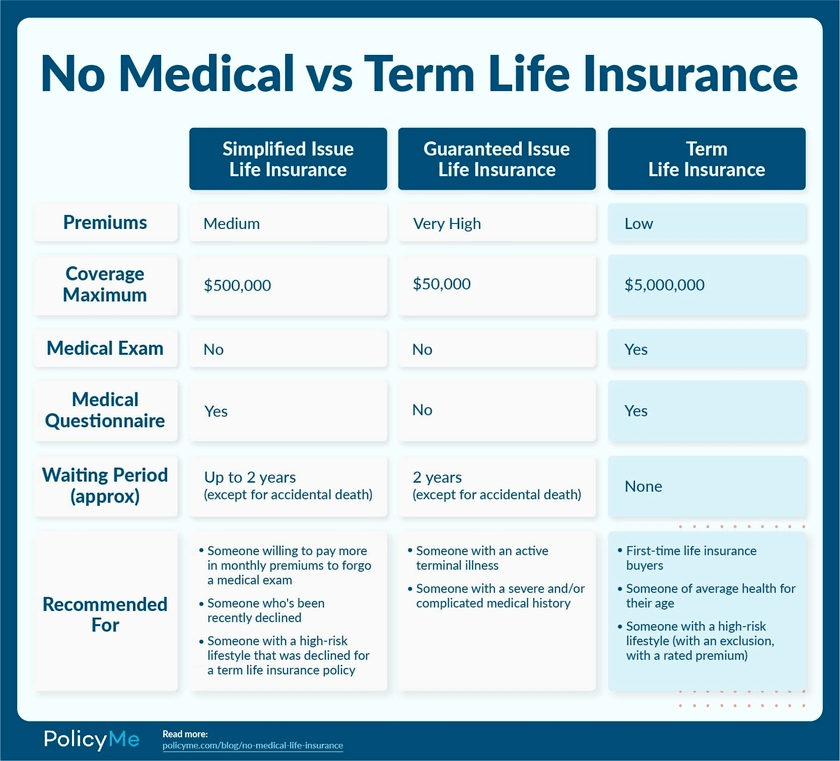As we age, the financial landscape shifts, and ensuring a secure future for ourselves and our loved ones becomes paramount. Life insurance, often associated with younger years, takes on a renewed significance for the elderly. It’s not just about leaving behind a financial legacy; it’s about safeguarding the well-being of those we care about, shielding them from the unexpected financial burdens that can arise after our passing.
This comprehensive guide explores the multifaceted world of life insurance for seniors, demystifying the complexities and providing clarity on the different types of policies, factors to consider, and the potential benefits they offer. Whether you’re seeking to cover final expenses, ensure a comfortable transition for your family, or simply provide peace of mind, this guide will equip you with the knowledge to make informed decisions.
Understanding the Need for Life Insurance in Later Life

While many associate life insurance with younger families, it remains a crucial financial tool for the elderly. As individuals age, their financial needs and vulnerabilities evolve, making life insurance a vital component of their financial planning.
Financial Challenges Faced by the Elderly
The elderly often face unique financial challenges that make life insurance a valuable asset. Retirement income, often limited to Social Security and savings, can be insufficient to cover unexpected expenses. Medical costs, which tend to rise with age, can significantly strain retirement funds. Additionally, the loss of a spouse can create a financial void, particularly for surviving spouses who rely on their deceased partner’s income.
Life Insurance and Funeral Costs
Funeral expenses can be substantial, averaging around $10,000 according to the National Funeral Directors Association. Life insurance can provide a financial cushion to cover these costs, relieving the surviving family of the financial burden. This allows them to focus on grieving and honoring their loved one’s memory without the added stress of financial concerns.
Protecting Loved Ones from Financial Burden
Life insurance can act as a safety net for loved ones, providing financial support after a loved one’s passing. This support can be crucial for surviving spouses, children, or other dependents who rely on the deceased’s income. The death benefit from life insurance can help cover ongoing expenses, such as mortgage payments, utility bills, and living costs, ensuring financial stability during a difficult time.
Types of Life Insurance for Seniors
Seniors have unique life insurance needs, and understanding the different types of policies available can help them make informed decisions. Here’s a breakdown of the most common life insurance options for the elderly, along with their features, benefits, and costs.
Term Life Insurance
Term life insurance provides coverage for a specific period, typically ranging from 10 to 30 years. It’s generally the most affordable option, making it suitable for seniors who need temporary coverage, such as to cover outstanding debts or provide financial support for their loved ones during a specific period.
For example, a senior might choose a 10-year term life insurance policy to ensure their spouse’s financial security during their retirement years.
Whole Life Insurance
Whole life insurance provides lifelong coverage and builds cash value that can be borrowed against or withdrawn. While premiums are typically higher than term life insurance, whole life insurance offers a combination of death benefit and investment features.
A senior who wants to leave a legacy for their heirs or secure their financial future might consider a whole life insurance policy.
Final Expense Insurance
Final expense insurance, also known as burial insurance, is specifically designed to cover funeral and other end-of-life expenses. These policies typically have smaller death benefits and lower premiums, making them a budget-friendly option for seniors who want to ensure their loved ones are not burdened with funeral costs.
For example, a senior might purchase a final expense insurance policy to cover the costs of their funeral and memorial service, relieving their family of financial strain during a difficult time.
Factors to Consider When Choosing Life Insurance

Choosing the right life insurance policy is a crucial decision for seniors, as it provides financial protection for loved ones in the event of their passing. Several factors come into play when making this choice, and careful consideration of these aspects can ensure the policy meets their specific needs and budget.
Age and Health
Age and health are two primary factors that significantly influence eligibility and premium rates for life insurance. As individuals age, their life expectancy decreases, leading to higher premiums. Similarly, pre-existing health conditions or medical history can impact eligibility and increase premiums. Insurance companies assess health risks based on factors such as age, medical history, lifestyle, and current health status.
Budget
Budget is a crucial consideration for seniors when choosing a life insurance policy. It is essential to determine the affordability of premiums and the coverage amount that aligns with their financial capabilities. Seniors should consider their income, expenses, and other financial obligations when deciding on the premium amount they can comfortably afford.
Coverage Needs
Coverage needs are another key factor to consider. Seniors should determine the amount of coverage required to meet their financial objectives, such as covering funeral expenses, outstanding debts, or providing financial support for surviving family members. The coverage amount should be sufficient to address their financial needs and ensure the well-being of their loved ones.
Professional Advice
Seeking professional advice from a qualified insurance agent is highly recommended. An experienced agent can guide seniors through the complexities of life insurance, explain different policy options, and help them choose a policy that aligns with their specific circumstances and needs. Agents can also provide insights into premium rates, coverage options, and the benefits of various insurance providers.
Cost of Life Insurance for the Elderly

The cost of life insurance for seniors is a crucial factor to consider when making decisions about coverage. Several variables influence the premium rates, primarily age and health status. Understanding these factors can help individuals make informed choices about their life insurance needs.
Age and Health Influence on Premiums
Life insurance premiums are calculated based on an individual’s risk of mortality. As individuals age, their risk of passing away increases, which translates into higher premiums. The older the applicant, the more expensive the life insurance policy will be. Furthermore, pre-existing health conditions can significantly impact premium rates. Individuals with health issues are considered higher risk, leading to increased premiums.
Premium Rates for Different Age Groups and Health Conditions
To illustrate the impact of age and health on premiums, consider these hypothetical examples:
- A 65-year-old male in excellent health might pay approximately $50 per month for a $100,000 term life insurance policy.
- A 75-year-old female with a history of heart disease could face premiums exceeding $100 per month for the same coverage amount.
- An 80-year-old male with diabetes may find it challenging to secure life insurance due to the elevated risk associated with his condition, or the premiums might be prohibitively high.
These examples highlight the significant impact of age and health on life insurance premiums. It’s essential to remember that these are just estimates, and actual rates may vary based on individual circumstances and the insurer’s underwriting guidelines.
Premium Comparison Table
Here’s a table comparing premium costs for various types of life insurance policies for a hypothetical 70-year-old male in good health, assuming a $100,000 death benefit:
| Type of Policy | Monthly Premium |
|---|---|
| Term Life Insurance | $75 |
| Whole Life Insurance | $200 |
| Universal Life Insurance | $150 |
This table demonstrates that term life insurance generally offers the most affordable premiums, while whole life insurance tends to be the most expensive. Universal life insurance falls somewhere in between, providing flexibility in premium payments and death benefit adjustments. It’s important to note that these are illustrative examples, and actual premiums will vary based on individual factors and the insurer’s specific policies.
Benefits of Life Insurance for Seniors

Life insurance offers a valuable safety net for seniors, providing financial security for themselves and their loved ones. It offers peace of mind, knowing that their financial obligations will be met, even in their absence.
Financial Security for Loved Ones
Life insurance can be a lifeline for surviving family members, easing the financial burden during a difficult time. It provides a lump sum payment that can be used to cover various expenses, including funeral costs, outstanding debts, and ongoing living expenses.
- Funeral Expenses: Funeral costs can be substantial, ranging from a few thousand dollars to tens of thousands, depending on the type of service and location. Life insurance can alleviate the financial strain of these expenses, allowing loved ones to focus on grieving and honoring their loved one’s memory.
- Medical Bills: End-of-life medical care can be costly, and life insurance can help cover these expenses, ensuring that the family is not burdened with mounting medical bills. This is especially important if the senior has pre-existing conditions or requires extensive care.
- Outstanding Debts: Life insurance can be used to pay off outstanding debts, such as mortgages, credit card bills, or loans. This prevents the burden of debt from falling on surviving family members, ensuring their financial stability.
- Living Expenses: For surviving spouses or dependents, life insurance can provide a source of income to cover ongoing living expenses, such as rent, utilities, and groceries. This can help maintain their financial stability and prevent them from facing financial hardship.
Peace of Mind for Seniors
Life insurance can provide seniors with peace of mind, knowing that their financial obligations will be taken care of, even in their absence. This peace of mind can reduce stress and anxiety, allowing them to enjoy their golden years with greater confidence.
- Financial Security: Seniors may worry about leaving their loved ones with financial burdens, especially if they have outstanding debts or dependents. Life insurance can alleviate these concerns, providing financial security for their loved ones and ensuring their financial well-being.
- Legacy Planning: Life insurance can be used to create a legacy for future generations, providing financial support for children, grandchildren, or other beneficiaries. This allows seniors to leave a lasting impact on their family’s financial future.
- Avoiding Financial Burden on Family: Seniors may not want to burden their family with the financial strain of their final expenses. Life insurance can help alleviate this burden, ensuring that their family can focus on grieving and remembering their loved one, rather than dealing with financial stress.
Alternatives to Traditional Life Insurance
While traditional life insurance policies are a common choice for many seniors, alternative options can provide more affordable and flexible coverage. These alternatives can cater to specific needs and financial situations, making them a suitable choice for individuals who might not qualify for or need the extensive coverage offered by traditional life insurance.
Burial Insurance and Final Expense Plans
These policies are designed to cover funeral and burial expenses, providing financial support for loved ones during a difficult time. They typically offer smaller death benefits, ranging from a few thousand to tens of thousands of dollars.
Features and Benefits
- Lower Premiums: Burial insurance and final expense plans often have lower premiums compared to traditional life insurance, making them more accessible to seniors on fixed incomes.
- Simplified Application Process: These policies usually have less stringent underwriting requirements, making it easier for seniors with health issues to qualify.
- Guaranteed Acceptance: Some plans offer guaranteed acceptance, meaning approval is guaranteed regardless of health status.
- Limited Coverage: The primary purpose is to cover final expenses, offering limited coverage for other financial needs.
Costs and Considerations
- Limited Death Benefit: The death benefit is usually smaller than traditional life insurance, which may not be sufficient to cover all final expenses.
- Higher Premiums over Time: Premiums can increase over time, making them less affordable in the long run.
- Limited Flexibility: These policies offer limited flexibility in terms of coverage options and beneficiaries.
Comparing Traditional Life Insurance and Alternatives
| Feature | Traditional Life Insurance | Burial Insurance/Final Expense Plans |
|---|---|---|
| Coverage | Broader coverage, including death benefits, living benefits, and potential investment options | Limited coverage, primarily focused on final expenses |
| Premiums | Higher premiums, potentially increasing over time | Lower premiums, potentially increasing over time |
| Underwriting | More stringent underwriting requirements | Less stringent underwriting requirements |
| Flexibility | More flexible in terms of coverage options and beneficiaries | Limited flexibility in terms of coverage options and beneficiaries |
| Death Benefit | Larger death benefit, potentially covering a wider range of financial needs | Smaller death benefit, specifically designed for final expenses |
Finding the Right Life Insurance Policy
Navigating the world of life insurance can feel overwhelming, especially for seniors. With numerous policies and providers available, it’s crucial to find one that aligns with your specific needs and financial situation. This section will guide you through the process of finding the right life insurance policy, providing practical tips and resources to help you make informed decisions.
Comparing Policies and Finding the Best Options
To ensure you’re getting the best possible value for your money, it’s essential to compare different life insurance policies from various providers. This involves considering factors like coverage amounts, premiums, policy terms, and the reputation of the insurer. Here are some resources and tools that can help you in this process:
- Online Life Insurance Comparison Websites: Several websites allow you to compare quotes from different insurers side-by-side. These platforms often include filters to refine your search based on your age, health, coverage needs, and budget. Examples include PolicyGenius, LifeInsurance.com, and QuoteWizard.
- Independent Insurance Agents: These professionals work with multiple insurance companies and can help you compare policies from different providers. They can also provide personalized advice based on your specific circumstances.
- Consumer Reports: This organization publishes ratings and reviews of insurance companies, providing valuable insights into their financial stability and customer satisfaction.
Using Online Calculators to Estimate Premiums and Coverage Amounts
Online life insurance calculators can be helpful tools for estimating premiums and coverage amounts. These calculators typically require you to input information such as your age, health, desired coverage amount, and policy term. They then provide an estimated monthly premium based on your input. While these calculators are not guaranteed to be accurate, they can provide a general idea of the cost of life insurance.
Here’s an example of how to use an online calculator: Let’s say you’re a 70-year-old male in good health and you want to purchase a $50,000 term life insurance policy for a 10-year term. Using a calculator, you might find that the estimated monthly premium is around $50. However, it’s crucial to note that this is just an estimate, and the actual premium may vary depending on the specific insurer and policy details.
Common Myths and Misconceptions

It’s crucial to separate fact from fiction when considering life insurance in your later years. Many misconceptions surround this topic, potentially hindering informed decision-making. This section aims to debunk common myths and misconceptions, providing evidence-based information to guide you towards making sound choices.
Life Insurance Is Too Expensive for Seniors
While it’s true that premiums can increase with age, the cost of life insurance for seniors isn’t always prohibitive. Several factors influence the cost, including health status, lifestyle, and the type of policy chosen. For example, a healthy 70-year-old with a clean bill of health may find affordable options available. Furthermore, some insurance companies specialize in offering policies specifically tailored to seniors.
Seniors Don’t Need Life Insurance
This misconception often stems from the belief that seniors have fewer financial obligations. However, many seniors still have dependents, including spouses, children, or grandchildren, who may rely on their financial support. Life insurance can provide financial security for loved ones in the event of the senior’s death, helping them cover expenses like funeral costs, outstanding debts, or living expenses.
Life Insurance Won’t Pay Out If You Die Soon After Purchasing It
This is a common misconception, often referred to as the “suicide clause.” While there is a waiting period before a death benefit is paid out (usually 2 years), this clause typically applies to suicides, not natural deaths. If you die from a natural cause within the waiting period, the beneficiary will still receive the death benefit.
You Can’t Get Life Insurance If You Have Pre-existing Conditions
This isn’t necessarily true. While some companies may have restrictions, others specialize in providing coverage for individuals with pre-existing conditions. It’s essential to shop around and compare policies from various insurers to find one that suits your specific needs and health status.
It’s Too Late to Buy Life Insurance
It’s never too late to consider life insurance, even if you’re in your 70s or 80s. While premiums may be higher, there are options available for seniors. Several insurance companies offer simplified issue policies, which require less medical underwriting and are often available for individuals with health challenges.
Importance of Planning and Estate Planning
Planning for the future is crucial for seniors, especially when it comes to ensuring their loved ones are financially secure after they pass away. Life insurance plays a significant role in this planning process, acting as a safety net for beneficiaries and helping to minimize the financial burden during a difficult time.
Incorporating Life Insurance into Estate Planning
A comprehensive estate plan Artikels how your assets will be distributed after your death. Life insurance can be a vital component of this plan, providing a financial cushion for beneficiaries to cover expenses like funeral costs, outstanding debts, or even financial support.
Working with Financial Advisors
Financial advisors are valuable resources for seniors navigating the complex world of estate planning. They can help you:
- Assess your financial situation: This involves evaluating your assets, liabilities, and income to determine your overall financial picture.
- Identify your goals: Financial advisors help you define your goals for your estate plan, such as providing for loved ones, covering funeral costs, or establishing a charitable legacy.
- Develop a personalized plan: Based on your financial situation and goals, they create a customized estate plan that includes life insurance, trusts, wills, and other relevant documents.
- Review and update your plan: As your financial situation or goals change, your estate plan should be reviewed and updated accordingly. Financial advisors provide ongoing guidance and support to ensure your plan remains relevant.
The Role of Life Insurance in Ensuring a Smooth Transition of Assets
Life insurance can act as a financial bridge for beneficiaries, providing them with the resources to:
- Cover funeral and burial expenses: These costs can be significant, and life insurance can ensure that loved ones are not burdened with unexpected financial obligations.
- Pay off outstanding debts: Life insurance proceeds can be used to settle debts like mortgages, credit card balances, or medical bills, relieving beneficiaries of financial stress.
- Provide financial support: Life insurance can offer financial security for dependents, such as a surviving spouse or children, allowing them to maintain their lifestyle or pursue educational goals.
- Fund charitable causes: Life insurance proceeds can be designated to support charitable organizations or causes that are important to the deceased.
“Life insurance is an essential tool for seniors seeking to protect their loved ones and ensure a smooth transition of assets.”
Conclusion
While it may not be the most pleasant topic to consider, life insurance for seniors is an essential component of comprehensive financial planning. It provides a safety net for loved ones, ensuring their financial well-being in the event of your passing.
The key takeaway is that life insurance can provide peace of mind and financial security for both you and your family.
Seeking Professional Advice
It’s crucial to seek professional advice from a qualified insurance agent or financial advisor to determine the right type and amount of coverage.
Exploring Options
There are various life insurance options available for seniors, including traditional life insurance, final expense insurance, and burial insurance.
Taking Action
Don’t delay in taking steps to secure your financial future. Contact an insurance professional today to discuss your needs and explore the various options available.
Concluding Remarks
Navigating the intricacies of life insurance for the elderly can feel daunting, but it doesn’t have to be. By understanding your needs, exploring available options, and seeking professional advice, you can make informed choices that secure your legacy and protect those you love. Remember, life insurance is not just about financial security; it’s about ensuring peace of mind and providing a safety net for your loved ones during a difficult time.

